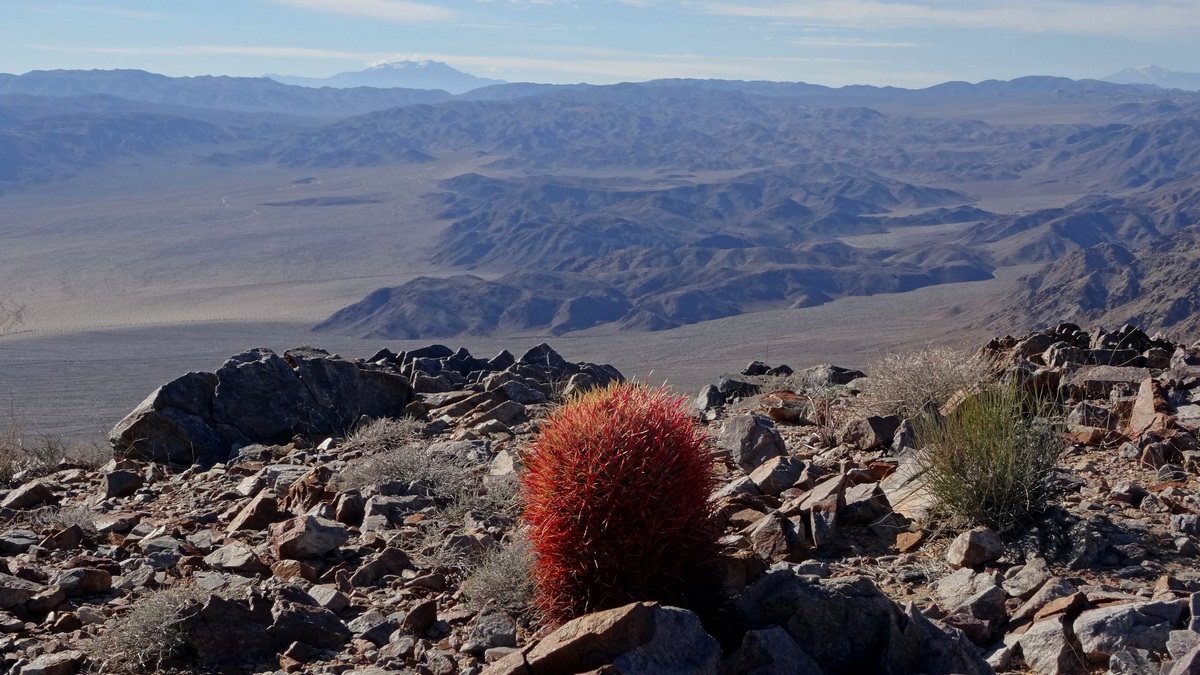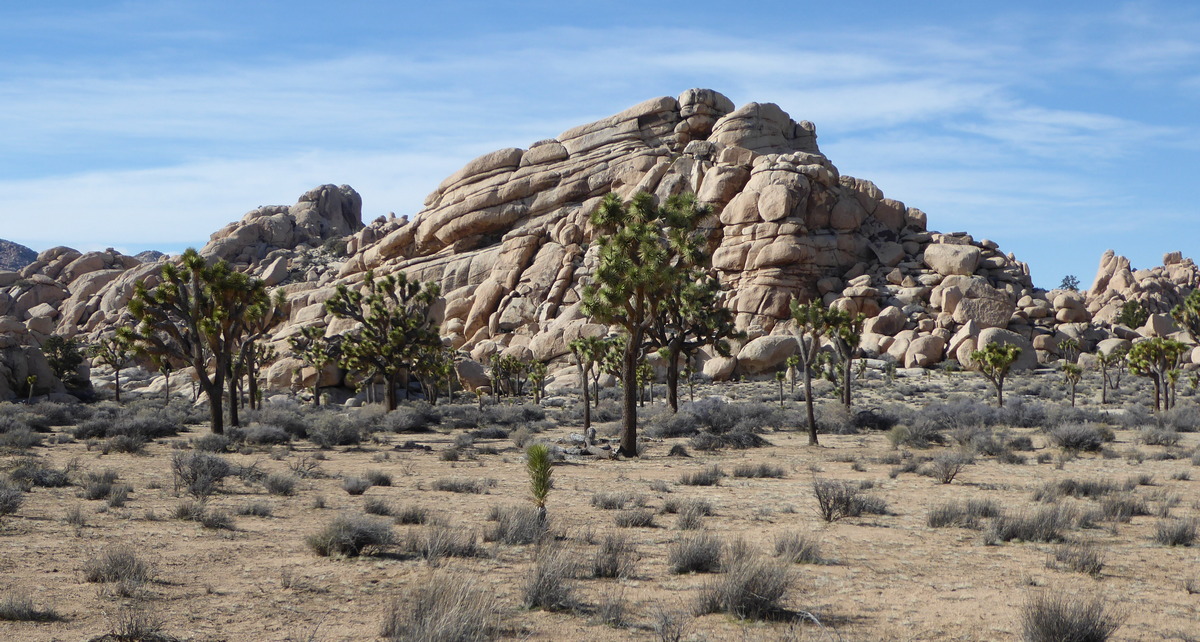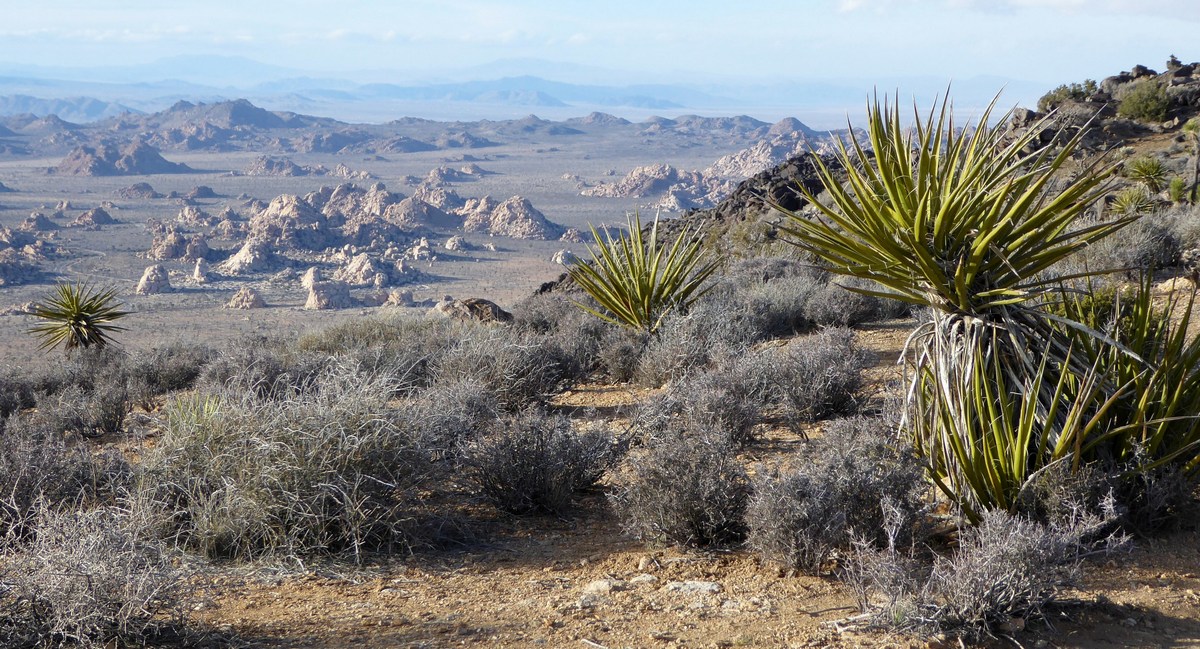Comments from the Chair
50th Earth Day on the web - April 22, 2020
The COVID-19 Pandemic halted plans for hundreds of in person rallies, festivals and marches. San Antonio’s Woodlawn Lake event was cancelled. Online conferences and many films, and other activities were used to still keep the focus on celebrating our vital relationship with our Mother Earth.
I watched Al Gore’s “Inconvenient Truth” film again. Too bad twenty year-old climate change warnings are still unheeded by the White House.
Texas Tech climate scientist Katharine Hayhoe gave a good seminar for Citizen’s Climate Lobby on Saturday April 25th. She correctly emphasizes that climate change is a huge threat multiplier, impacting many different aspects of life on Earth, and multiplying impacts of air pollution, drought, agriculture losses etc. by cross connections.
“Tipping Points” have also become increasingly clear, indicating points at which our Earth will shift irreversibly (within our time scale at least) from what has been our relatively steady state to a completely different world, with oceans many feet higher, coastal cities inundated, massive storms and droughts and fires all new normals, etc.
Climate change tests resilience
Climate resilience can be generally defined [Wikipedia] as the capacity for a socio-ecological system to: (1) absorb stresses and maintain function in the face of ... stresses imposed upon it by climate change and (2) adapt, reorganize, and evolve into more desirable configurations that improve the sustainability of the system...'
How we respond to COVID-19 is yet another test to human resilience, like how we respond to Climate Change, massive storms, droughts, etc. There are as I write about 3M COVID cases worldwide; that is less than 0.05% of humanity. We are only at the very beginning of this pandemic, likely to go on at least until 2022, before testing, immunity and vaccination are available widely. U.S.
COVID deaths in 3 months are about 55,000, just shy of our battle losses in 12 years in Vietnam. Looked at in this way we see how terribly fragile our country and international trading system are--climate change threat multipliers can easily disrupt our systems by as much or more than the COVID-19 pandemic has, and this will surely not be the last pandemic we face. These stressors on the world systems of human activity expose many horrible inequities, and exacerbate what is already enormous widespread human suffering.
The political right tends to believe in Social Darwinism, that people are poor and disadvantaged because they deserve their lot in life, and that it is unjust to take from the well to do to aid the less fortunate. People on the left tend to believe government’s core functions include not only national security from external threat, but also enforcing rules for a just society, free society, and society with opportunity for all.
These functions thus include fundamental base load functions such as disaster relief, education, environmental protection, justice, worker safety, healthcare, and protection from homelessness. A degree of wealth redistribution is required to maintain this.
Controversy flares over pandemic response
Much of the U.S. is already clamoring to get back to “normal”. People on the right are especially suspicious of the role government has played in “stay at home orders” etc. State and local governments that have chosen to follow well established guidelines of epidemiology--including San Antonio and Bexar County--have seen great benefit.
Protestors who believe their “freedom” has been impaired are getting infected and spreading the virus, endangering the lives of others. As a result, it is likely we will have multiple infectious waves and much worse and longer pandemic than otherwise.
Post-pandemic economies must be more sustainable
The initial optimism for a quick “flu” like wave is gone, and the hopes for a quick v-shaped stock market fall are also gone. Regardless of COVID, the world economy, and especially the fossil fuel industry, is in free fall and expected to remain there probably through 2021 at least.
Many countries (not the U.S. of course) are already making plans to use this occasion to rebuild their economies in new, more sustainable, patterns using more renewable energy. Recognizing the critical decade for climate change in which we live, these countries (and portions of the U.S.) are moving toward the future. We need our local Climate Action & Adaptation Plan (CAAP) to implement strong standards to help San Antonio recover in a more resilient, more sustainable way.
Our utilities and VIA transit system will need major overhaul. Meanwhile, the Trump Administration continues to push us farther into the past, raising mercury air pollution levels, raising particulate air pollution levels, lowering vehicle emission standards to allow more INefficiency, lowering food safety standards, lowering water safety standards etc.
National SC announces groundbreaking climate policy
National Sierra Club just released a groundbreaking “Climate Resilience, Carbon Dioxide Removal, and Geoengineering Policy”. This calls attention to current scientific thinking that a one degree centigrade rise must be our goal if we are to limit atmospheric CO2 to 350 ppm and achieve climate sustainability. One and a half degrees (as in our Paris Accord goals) is simply too much.
We have waited too long (thank you George Bush, thank you Exxon, thank you many others). Carbon removal will now be required to achieve our end of century goals. This report adds further urgency to the climate equity and carbon goals of our local CAAP.
Chernobyl anniversary underscores need for storage solution
April 26th was the 34th anniversary of the nuclear power plant disaster that occurred at Chernobyl, UkSSR. The nuclear reactor meltdown exposed millions of people to high level radiation across Europe, killed untold numbers of people (bad data problems always, just like at our Three Mile Island, and Japan’s Fukushima), and left vast parts of Ukraine highly contaminated and still unfit for human habitation.
Our U.S. Government for decades has reneged on its promise to take radioactive waste (and its cost and liability) and safely and permanently (i.e. for 1 million years) dispose of this. Congress for several years now has been pushing for “interim” storage to take the waste from nuclear power plants to somewhere (out of sight, out of mind, out of budget) “until” a “permanent” site is located and developed.
Here is information on current legislation: Bills to support include H.R. 1544, S. 1985, S. 649; Bills to oppose include H.R. 2699, H.R. 2995, H.R. 3136, S. 2917, and S. 1234. Their status can be found at Congress.gov, and other information at the Nuclear Information and Resource Service.
Nuclear Regulatory Commission (NRC) is now trying to approve transport of high level radioactive nuclear waste (HLRW) from around the country into Andrews County, West Texas, and Lea County, Eastern New Mexico. There will be a comment period opening soon. Please oppose shipping HLRW through San Antonio.
They tell us this will be “interim” and “good for our nation”. We believe...not.
For more information, contact Karen Hadden, SEED Coalition, 605 Carismatic Lane, Austin, TX 78748, 512-797-8481, karendhadden@gmail.com, www.NoNuclearWaste.org.
Regional water plan in development
San Antonio is part of Region L, one of the water planning districts under the supervision of the Texas Water Development Board (TWDB). The draft Region L 2021 Water Plan is available for review. There will be three teleconference hearings for public comment on the plan: May 7, May 21, and May 28, all at 6pm.
This plan will help guide regional water use, looking out to 2070. SAWS makes up a huge part of this. Please review and make comments.
SC sues EPA over nation’s largest SO2 polluter
Pollution from the Martin Lake Coal Plant in northeast Texas costs more than $1 billion in public health costs every year. Read this press release.
by Terry Burns, M.D., Alamo Group ChairMay General Meeting Cancelled
Due to the Coronavirus, we have cancelled our May general meeting. When meetings are planned to resume we will let you know via email and post them on our events calendar.
In the meantime, please check our Facebook page for videos of previous meetings, updates on environmental issues, and just to keep in touch during these days of social distancing and other restrictions. We look forward to seeing you when this is over. Please stay healthy!
Joshua Tree National Park, Revisited
Joshua Tree National Monument was elevated to park status in 1994, with the addition of 234,000 acres. The park includes areas of both the Sonoran and Mojave deserts. Here's the park's website and the maps page.
Near the center of the park looking west from Pinto Peak across fingers of the higher elevation Mojave Desert (right) into the Sonoran Desert (left). San Gorgonio Peak, highest elevation in southern California, is on the horizon. Reprinted from the May, 2016 (PDF) issue of this newsletter.
I was inspired to do this article after listening to a Dirtbag Diaries podcast about what happened at the park during the December, 2018 government shutdown. The author is a paraplegic rock climber (wish I could watch him climb) who lives in the town of Joshua Tree.
He loves the park and so during the shutdown, with the park remaining open though unstaffed, he helped clean up facilities and campsites. Because of the holidays, they were overflowing with trash and illegal campers.
Some Joshua trees had been cut down to facilitate illegal off-road vehicle intrusion. He educated some of the visitors, resulting in some of them helping with the cleanup.
The last time I was there, in February of 2017, I picked up 200+ pieces of micro-litter near a campsite, which looked like the aftermath of wild animals getting into carelessly stored food. It had obviously been there a long time. I'm surprised more people don't do this.
Over several visits I have been fascinated with the transition between the Mojave and Sonoran deserts, typified by the picture above. In the picture, barely visible on the left, is Pinto Basin Road, which runs south-north through the park, with many opportunities to examine the vegetation unique to each desert. In the March, 2019 issue there were some pictures from Mojave Trails National Monument, which lies between the park and Mojave National Preserve to the northeast.
By 2100 there may be no Joshua trees living in the park due to climate change according to this National Geographic article. Happily, there are many in Mojave National Preserve (pictures in the above-mentioned May 2016 issue), and in northwestern Arizona.
Off Park Boulevard in the park near Ryan Mountain with a few Joshua trees. Looks like a bit of good bouldering here. Here is the park's page on climbing and bouldering, and another with more detail. Apparently there are 8000+ climbing routes and 2000+ boulder problems in the park.
Looking north from Ryan Mountain in the park. An easy 3 mile round-trip, gain 1050' to 5450'. The yuccas are Yucca schidigera, the Mojave yucca.
by Kevin Hartley, Alamo Group Outings leaderCommentary: Pandemic Shows Why City’s Utilities Need to Restructure Rates
Editor's note: This op-ed was published in the April 7th edition of the San Antonio Express-News
Express-News Staff Writer Joshua Fechter’s recent article on the city/county response to the coronavirus pandemic rightly praises local leaders for their remarkable job of addressing residents’ needs. While state and federal officials were dithering, our local leaders assembled an economic safety net that can improve the local economy long after the COVID-19 crisis is past.
We must remember the pandemic is not San Antonio’s only crisis. We also face a serious lack of affordable housing and a scandalous level of inequality, plus climate change. San Antonio urgently needs to put money and effort into making our community more resilient on all these fronts. Instead of “You’re on your own” measures, we need an equitable economy affirming “We’re all in this together.”
We can start by making some changes to the way our two city-owned utilities, CPS Energy and San Antonio Water System, charge their customers for energy and water. The City Council’s moratorium on utility shutoffs and evictions is appropriate, but it is only a start.
San Antonio has the worst poverty rate of the 25 largest U.S. cities — even worse than Detroit’s. Nearly half the workers aged 18-64 in the San Antonio/New Braunfels metropolitan statistical area earn low wages. They are mainly concentrated in San Antonio’s older, inner-city neighborhoods.
Before COVID-19, most of these low-wage workers were already struggling to pay for rent, utilities, food and medicine, even if they had steady, full-time jobs. Many have now been furloughed or let go. Even if they find work again in two months, there is no way they will be able to pay the utility bills that CPS and SAWS have merely deferred, not canceled.
I’ll focus on SAWS, which is restructuring its rates for the next five years. The current structure unfairly burdens low-income households and benefits water-intensive businesses.
The problem is SAWS’ heavy fixed charges. Basic water/sewer access costs a residential customer $27.61, compared with Austin’s $17.55, Dallas’ $10.11 and no charge in Houston. Those charges increased by 88 percent between 2009 and 2019. Even households that cut water usage saw huge bill increases while their incomes stagnated.
Consider something similar for small local businesses, especially in low-income neighborhoods. Disaggregate the “General Class” according to water-use relevant categories, finding ways to help residents in multifamily housing conserve water and save on rent.
Make all classes’ tiers based on inclining costs per unit of water. Raise unit costs across all classes. Heavy users (for example, 35,000 gallons a month or more) in any class should pay a substantial monthly fixed charge, like Austin’s heavy user charges.
This will help pay the $220,000 per day that SAWS will owe Vista Ridge pipeline investors. Businesses and residents using the most water ought to pay the bulk of that cost.
SAWS’ unfair rate-structure is part of the reason many thousands of customers annually have their water cut off. Unless we change something, these cutoffs will resume once the COVID-19 crisis abates. SAWS bills will once again push low-income families into the traps of payday lenders, evictions and homelessness.
Clean water is essential to human health. No public water utility should ever shut off water for families who cannot afford to pay the bills. Hardworking people who are paid less than a living wage should not have to choose between water, electricity, rent and food.
Let’s get creative. How about canceling the fixed charges that low-income families can’t pay during the crisis? Then let them “pay” the rest of their deferred bills with “time dollars” according to their abilities.
Perhaps an hour of volunteer work takes $10 off a bill. Reducing those deferred bills will save SAWS money on collections and greatly enhance the self-esteem of family breadwinners. That’s a good start to restoring equity in San Antonio.
Meredith McGuire is a professor emerita of sociology and anthropology at Trinity University.
by Meredith McGuire, Conservation Committee Co-ChairSierra Club Lawsuit Challenges Construction of Permian Highway Fracked Gas Pipeline
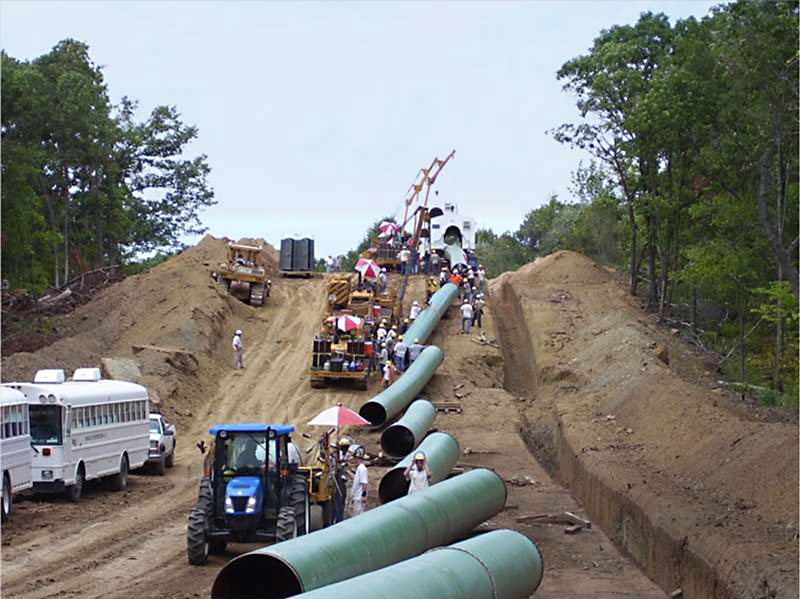
Photo Credit: City of Austin via Austin Chronicle
The Sierra Club filed a lawsuit today against the U.S. Army Corps of Engineers for permitting the ongoing construction of the 428-mile Permian Highway fracked gas pipeline, despite a federal court order vacating the nationwide permit on which the pipeline’s 449 water crossings are based, and for not performing the environmental review required under the National Environmental Policy Act (NEPA).
The Permian Highway Pipeline would carry fracked gas across Texas from the Permian Basin, through the Texas Hill Country, to an end point in Colorado County. The Army Corps issued an approval for the pipeline using a fast-tracked process called Nationwide Permit 12 (NWP12). This nationwide permit was vacated by a federal judge earlier this month, leaving the pipeline without valid verifications for dredge and fill activities. The Sierra Club’s lawsuit, filed today in the U.S. District Court Western District of Texas, argues that the Army Corps is violating the law by allowing the construction in rivers and streams to continue. In addition to the vacatur of NWP12, the suit argues that the Corps also failed to comply with NEPA when it approved the project.
Despite not having all of the necessary permits, Permian Highway Pipeline LLC has already begun construction on Permian Highway. Earlier this month, the company spilled drilling fluid into local water wells during construction, contaminating local residents’ drinking water. In response to the spill, Hays County revoked permits for the pipeline.
“As someone who has property and lives downstream on one of the major rivers crossed by the route of PHP, I am concerned about the potential negative impacts from both construction and operation of a high volume, high pressure fracked gas transportation pipeline. The clear water rivers, springs and aquifers are irreplaceable assets of the Hill Country prized by residents and all Texans,” said Hill Country resident John Watson. “The U.S. Army Corps of Engineers, by using the Nationwide Permit 12 process to allow crossing our rivers and streams, deprived the impacted people to even have a voice. Opposition to this route, not attempted by any other pipeline coming out of the Permian Basin, is widespread. It is time for those voices and concerns to get a fair hearing.”
“If completed, the Permian Highway Pipeline could devastate communities, clean water, and wildlife along the route, and the Army Corps can’t just ignore these impacts,” said Sierra Club Senior Campaign Representative Roddy Hughes. “The fact that there’s already been a spill into the local water supply in the early stages of construction makes it more obvious than ever that the Corps must not allow the continuing construction of this dirty fracked gas pipeline without analysis of its environmental impacts and full local public participation in the permitting process.”
"It is outrageous that the Corps approved this project without public notice or opportunity to comment on their permits," said Sierra Club attorney Rebecca McCreary. "Nationwide Permit 12 allows for no public hearings or participation by the local communities before the Corps permits construction to start, nor is there public notice or comment on the U.S. Fish and Wildlife Service permits allowing harm to the endangered species along the route. The Corps should stop this project immediately."
Sierra Club is represented by the Sierra Club Environmental Law Program and local counsel Mary Whittle and Mark Guerrero of Guerrero & Whittle, PLLC.
Join the Fight to Win a Just and Sustainable Recovery from COVID-19
Over four million people joined Earth Day Live, and I was so inspired by the youth activists bringing 450+ speakers, actors, frontline leaders, elected officials, musicians to the virtual stage to demand a more equitable response to both the COVID-19 and climate crises.
But our work is just getting started. The COVID-19 pandemic is making our society's stark inequalities all the more extreme. This moment is showing us the urgent need to recover from the health and economic crises by building a more equitable and livable future for all of us. We can't go back to "normal," because normal was not working.
Right now, Congress is debating how to spend trillions of dollars for the relief and recovery we need to protect our health, communities, and workers and invest in a livable future. Meanwhile, the Trump administration and Congressional Republicans are exploiting this crisis as an opportunity to give handouts to corporations and polluters. We can't let this slide.
It is not an overstatement to say that what happens in the next few months will shape our society and economy for decades to come.
That's why it's time for all of us to take things to the next level. In the coming weeks, we're launching a full-out campaign to leave Congress no choice but to stand on the right side of history. We'll be holding online trainings and coordinating actions you can take from home to push Congress to act on the scale that's necessary to address both the COVID-19 and climate crises. With leaders like Trump and McConnell calling the shots, we need activists across the country demanding change.
Sign up to join the campaign for an equitable response to the COVID-19 and climate crises.
We'll be discussing opportunities for action, including:
- Social Media Activism - Using social media to spread the word and pressure our elected leaders to do the right thing
- Virtual Lobbying - Sharing our demands with your members of Congress
- Art & Activism - Creative opportunities to collectively process this crisis and get our message out there
- Building the Movement - How to show up as a good partner or ally in this moment
We know there's a lot of uncertainty in our lives right now, so if you're feeling unsure, know that we will be there to support you every step of the way.
Now is the time to join together to rebuild a more equitable clean energy economy for ALL of us.
by Morissa Zuckerman, Senior Online Organizer, Sierra Club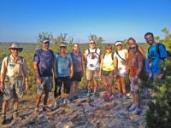
Outings: The Call of the Wild
Visit the Alamo Sierra Club Outings page on Meetup for detailed information about all of our upcoming Sierra Club Outings.
The Alamo Sierran Newsletter
Richard Alles, Editor
Published by The Alamo Group of the Sierra Club, P.O. Box 6443, San Antonio, TX 78209, AlamoSierraClub.org.
The Alamo Group is one of 13 regional groups within the Lone Star Chapter of the Sierra Club.
Changed your mailing address?
Have you moved? Let us know by sending your old address, your new address and your member ID (see: Locating Your Member ID) to: address.changes@sierraclub.org.
Go online for the latest news and events
 |
